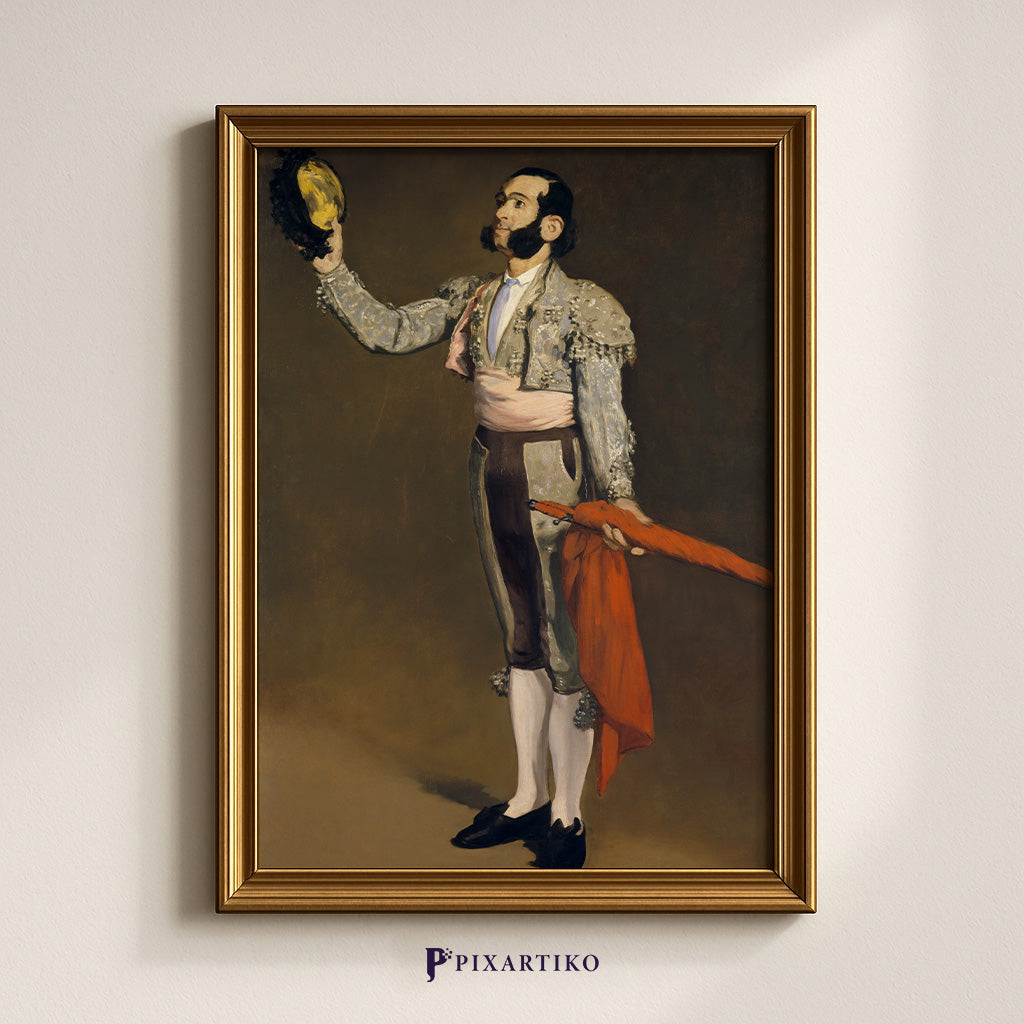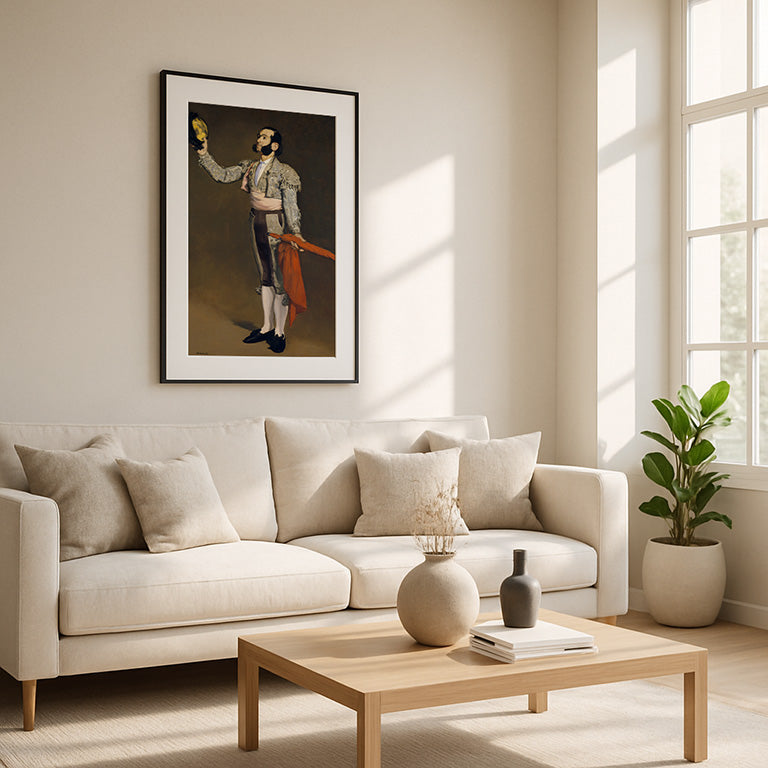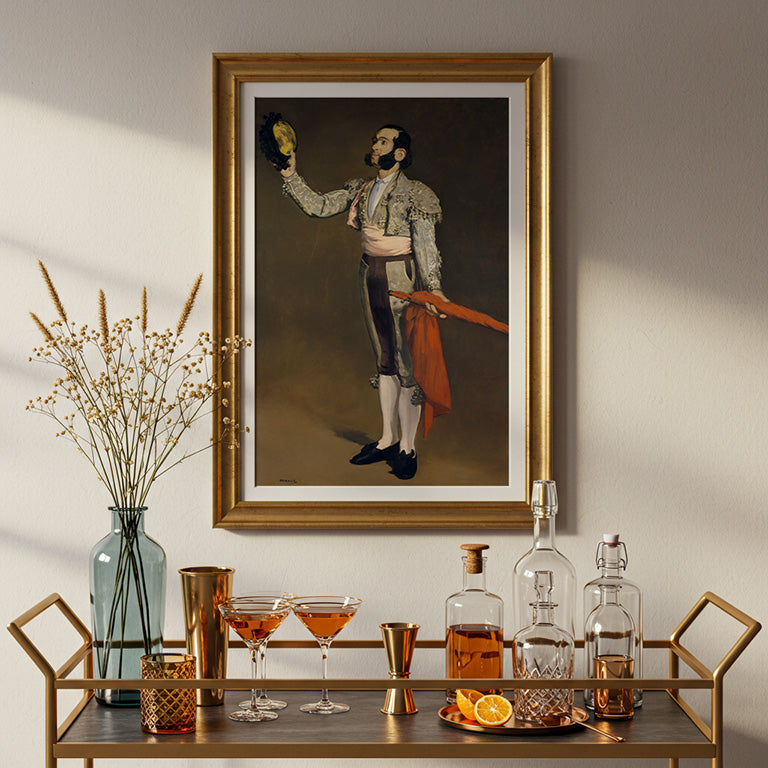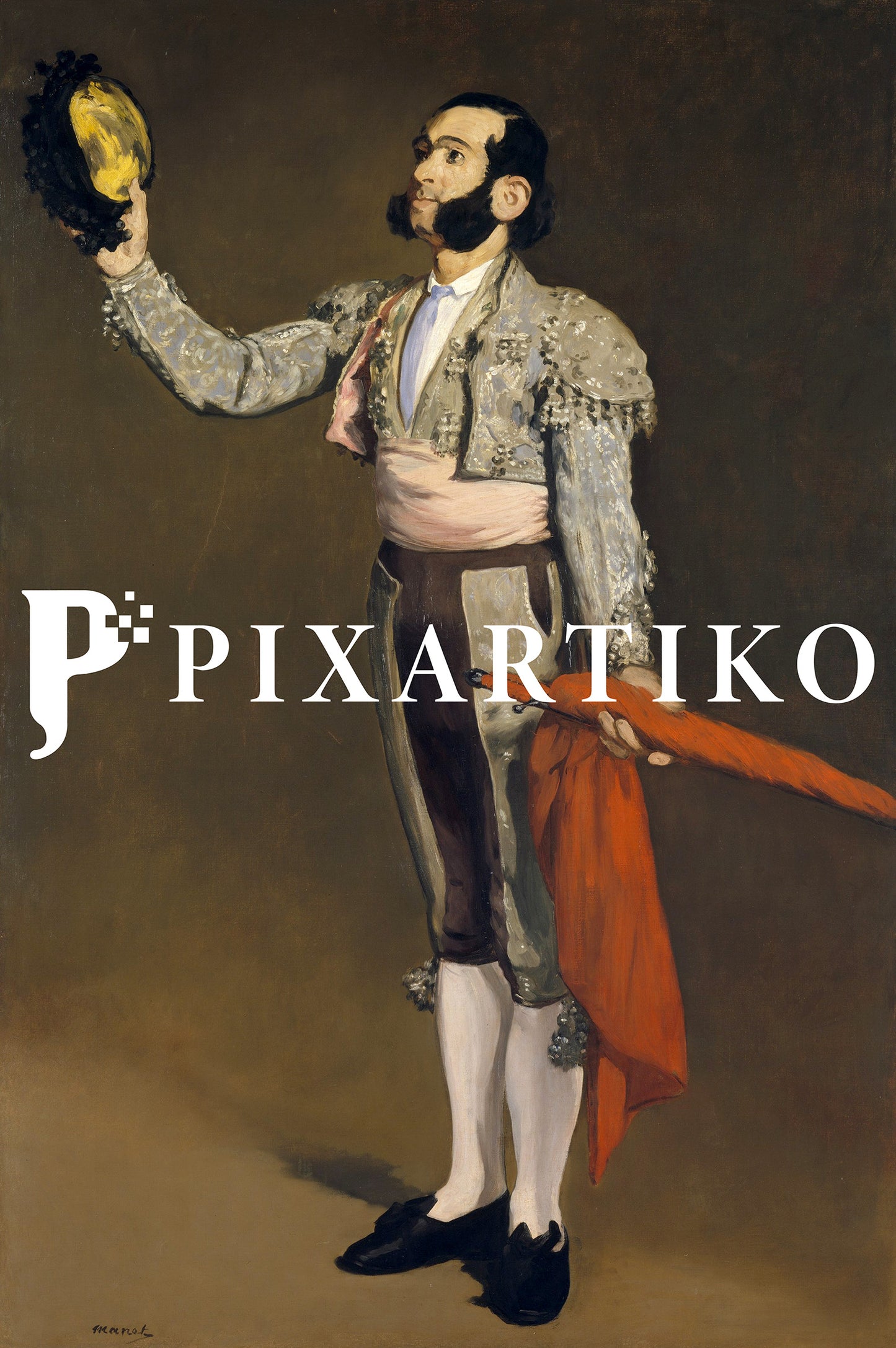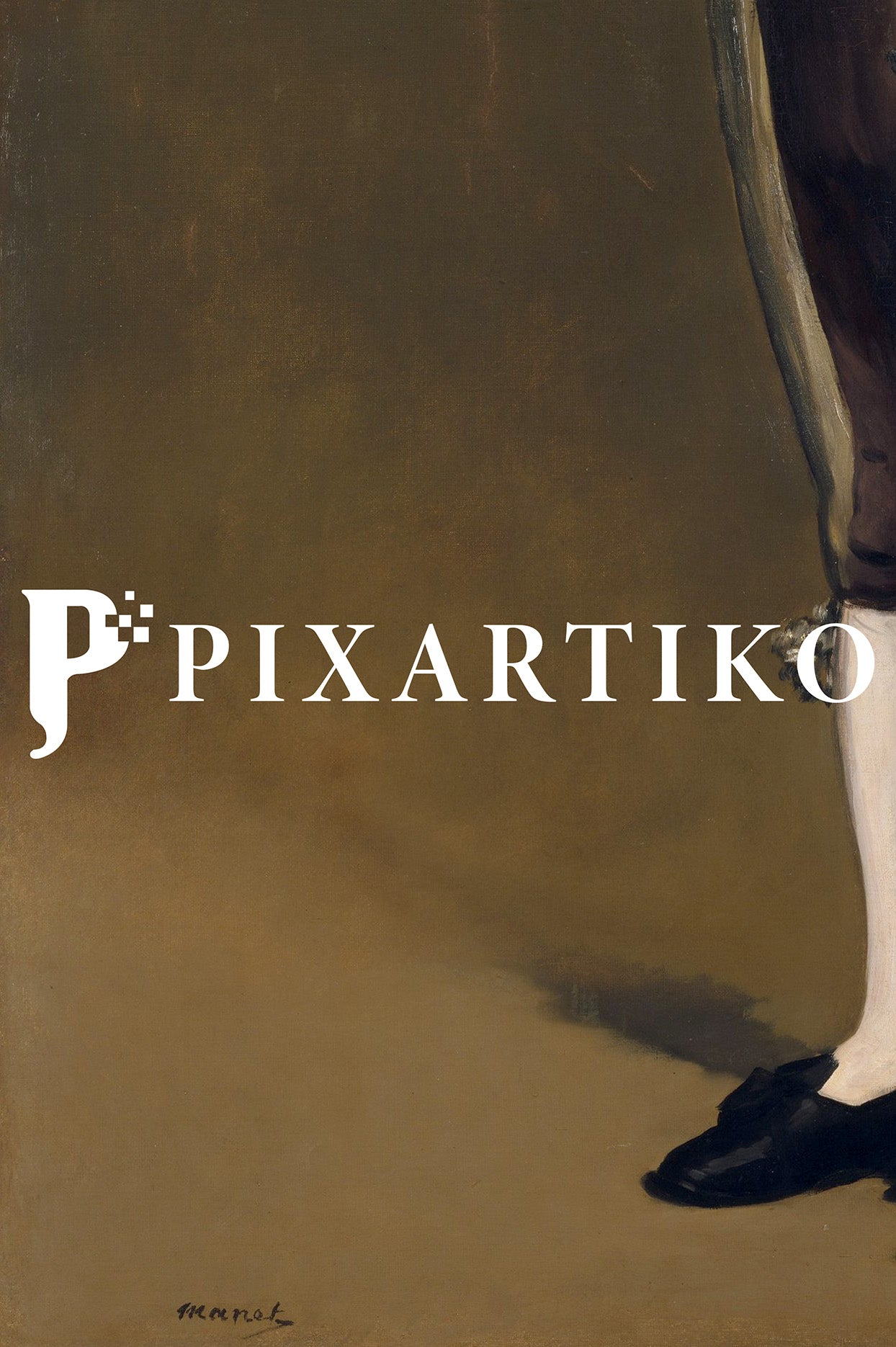"A Matador" by Édouard Manet
"A Matador" by Édouard Manet
No se pudo cargar la disponibilidad de retiro
Portrait Printable Art (1866–67)
Add bold elegance to your space with A Matador by Édouard Manet (1866–67). This dramatic full-length portrait captures a Spanish bullfighter in full regalia, radiating strength, pride, and theatrical poise—perfect for lovers of classical art, Spanish culture, and striking wall decor.
➤ High-resolution printable artwork
➤ Ideal for portrait collectors, vintage costume lovers, and dramatic statement decor

Pixartiko Collective – Usage License
Prints allowed for personal use and resale only as physical products in local shops. Use in other physical goods permitted if pixartiko.com is credited when possible.
Digital resale, sharing, or publishing is strictly forbidden.
Designs are not public domain and cannot be distributed online.
© pixartiko.com – All rights reserved.
Print Sizes
🖼 Included Print Sizes (No Cropping Needed)
This high resolution digital file is optimized for printing at the following standard sizes, no cropping or borders required. Just download, print, and frame:
| Inches | Centimeters | Suggested Use |
|---|---|---|
| 24 x 36 | 61.0 x 91.4 | Posters, gallery wall art |
| 20 x 30 | 50.8 x 76.2 | High-quality prints, home decor |
| 16 x 24 | 40.6 x 61.0 | Framed photography, exhibition pieces |
| 12 x 18 | 30.5 x 45.7 | Standard photo posters, vertical layouts |
| 10 x 15 | 25.4 x 38.1 | Framed prints, art portfolios |
| 8 x 12 | 20.3 x 30.5 | Common photo size, albums and small displays |
🖨️ All sizes are print-ready at 300 DPI, maintaining the original image ratio. No cropping or borders required.
📂 Your download includes:
- 1 high resolution JPEG file (Aspect Ratio: 2:3, Portrait – Standard Photo Format).
- Artistic Declaration Certificate in PDF.
- Free gift: The Ages of Painting guide — a visual journey through the history of painting.
🎨 Need a different size or format?
No problem! Just send me a message and I’ll be happy to adapt it for you.
🎧 Art Review
A Matador by Édouard Manet (1866–1867).
In A Matador, Édouard Manet trades spectacle for stillness, giving us not the charged frenzy of the bullring but a theatrical moment suspended in time. This full-length portrait, painted between 1866 and 1867, presents a solitary matador, not as a warrior in action but as a figure of formal introspection. The result is hypnotic.
The matador stands erect, his profile sharpened against a muted brown background. He holds his montera in one hand as if saluting a distant crowd or confronting a higher power. In the other, he grips the unmistakable red cape (capote), which slashes the composition with a burst of color as vivid as a trumpet call. There is no bull, no audience, no arena—only this lone performer in his glittering, embroidered suit, caught in a moment of ceremonial poise.
Manet’s brushwork here is tighter than in his later, more famously loose style, but still carries the immediacy of the real. The velvet, silk, and metal-thread textures of the traje de luces shimmer with the strange dignity of ritual garb. His palette is rich yet restrained, allowing the red sash and cape to take center stage.
What sets A Matador apart is not just the elegance of its composition, but the tension between bravado and vulnerability. This is not an anonymous symbol of Spanish tradition. This is an individual, stoic but theatrical, staged like a secular saint. There is drama here, yes, but it is inward.
Manet challenges our expectations. Rather than glorifying violence or spectacle, he isolates the gesture, inviting us to study the performer as icon, as archetype, as man. With a pose part devotional, part defiant, A Matador asks us not to cheer, but to watch—quietly, intently, reverently.

Share
